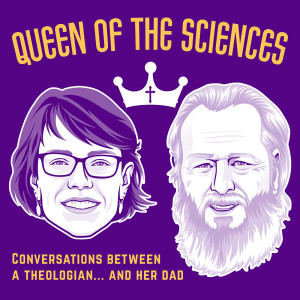
Being great afficionados of great thinkers who are impossible contradictions, we turn our attention to American founding father Thomas Jefferson: the man who penned the stirring words of the Declaration of Independence that "We hold these truths to be self-evident, that all men are created equal, that they are endowed by their Creator with certain unalienable Rights, that among these are Life, Liberty and the pursuit of Happiness" ... and yet, in his lifetime, owned over 600 slaves including a (for lack of a better term) concubine, Sally Hemings (who also happened to be his deceased wife's half-sister...!!), manumitted only two of those slaves and none of them his own children by Sally until after his death according to his will, and made at best lackluster gestures toward the injustice of it all, not to mention its moral corruption of slaveholders. In this episode, we try to make sense of this "American sphinx" and especially his revisionist attitude toward Christianity, producing a variation on the faith with no power to set slaves free—or Jefferson himself.
Notes:
1. Ellis, American Sphinx
2. Meacham, Thomas Jefferson: The Art of Power
3. Jefferson, Writings (Library of America). See in particular the following: Notes on the State of Virginia, 1787 letter to Peter Carr, 1803 letter to Joseph Priestley, 1803 letter to Benjamin Rush, 1813 letter to John Adams, 1816 letter to Charles Thomson, 1819 and 1820 letters to William Short, 1822 letter to Benjamin Waterhouse, 1826 letter to James Heaton.
4. Locke, Second Treatise of Government and Letter concerning Toleration
5. Havel, “The Power of the Powerless”
6. Manseau, The Jefferson Bible
Do you rejoice every other Tuesday to see a new Queen of the Sciences episode appear? Then consider supporting us on Patreon. You can start at just $2 a month; more gets you swag. Or just pay us a visit at sarahhinlickywilson.com and paulhinlicky.com!
More Episodes
 2024-11-05
2024-11-05
 2024-10-22
2024-10-22
 2024-10-15
2024-10-15
 2024-10-08
2024-10-08
 2024-09-24
2024-09-24
 2024-09-10
2024-09-10
 2024-08-27
2024-08-27
 2024-08-13
2024-08-13
 2024-07-30
2024-07-30
 2024-07-16
2024-07-16
 2024-07-02
2024-07-02
 2024-06-18
2024-06-18
 2024-05-21
2024-05-21
 2024-05-07
2024-05-07
 2024-04-23
2024-04-23
 2024-04-09
2024-04-09
Create your
podcast in
minutes
- Full-featured podcast site
- Unlimited storage and bandwidth
- Comprehensive podcast stats
- Distribute to Apple Podcasts, Spotify, and more
- Make money with your podcast
It is Free
- Privacy Policy
- Cookie Policy
- Terms of Use
- Consent Preferences
- Copyright © 2015-2024 Podbean.com





